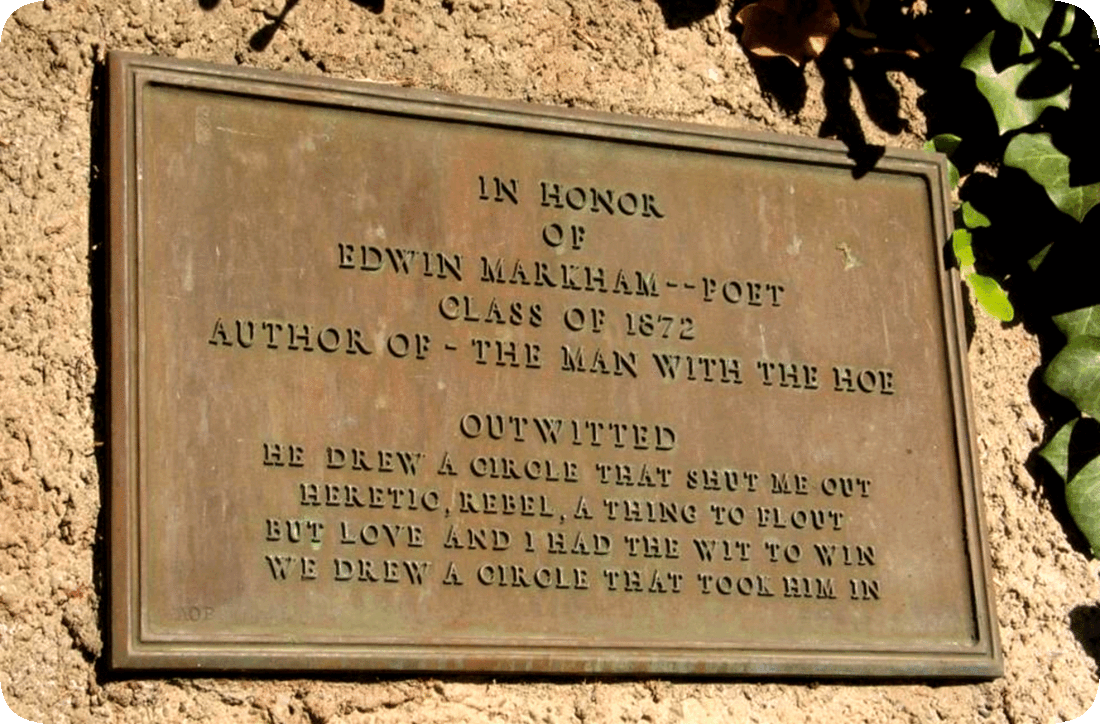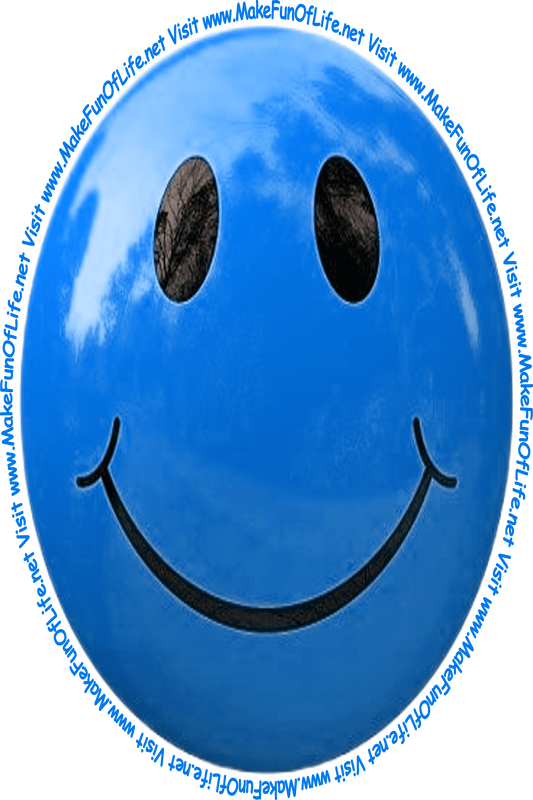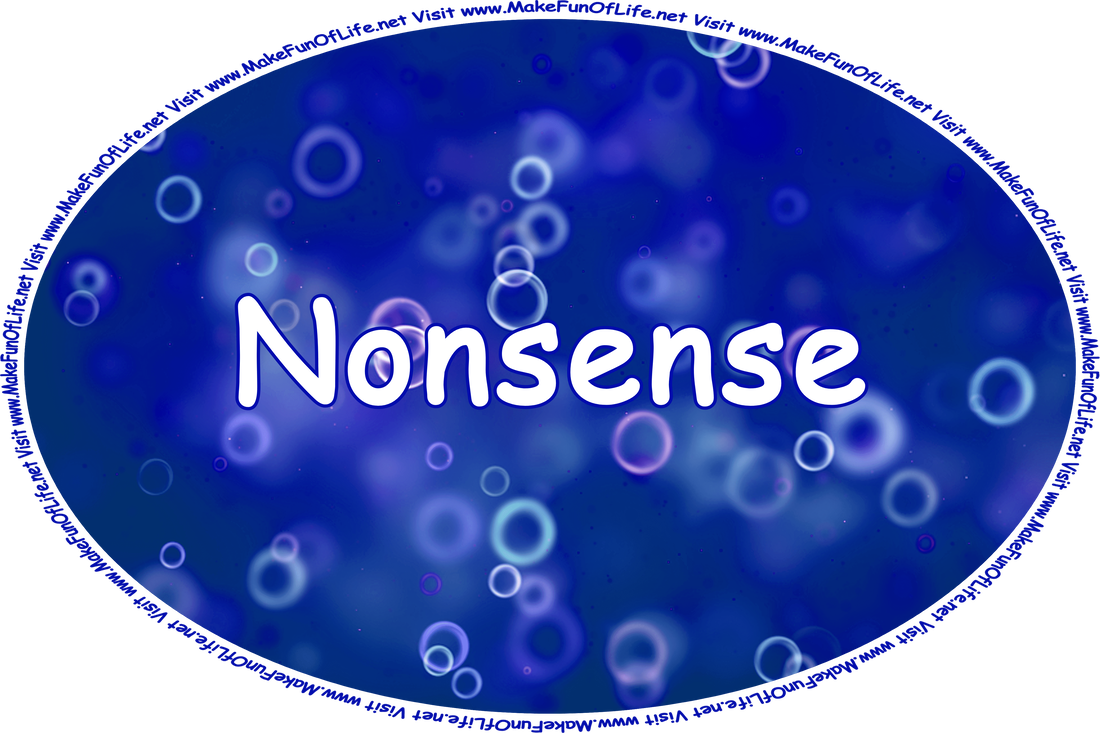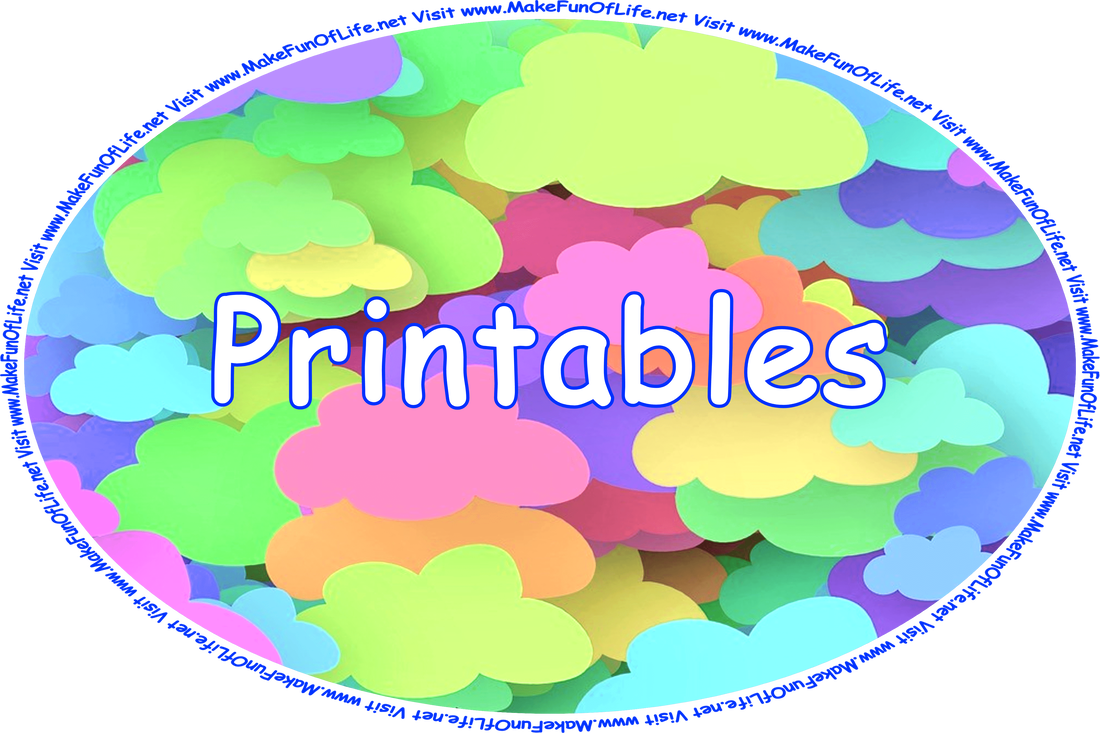Look around the habitable world: how few
Know their own good, or knowing it, pursue.
-Decimus Iunius Iuvenalis (also known as Decimus Junius Juvenalis or simply Juvenal (about C.E. 47 - about C.E. 138)): as quoted in John Dryden (1631 - 1700), translator: “The Satires of Decimus Junius Juvenalis: And of Aulus Persius Flaccus” (1693), Satire 10, lines 1 and 2
Once upon a time, it happened to me,
the very sweetest thing, that could even be.
It was a fantasy, a dream come true,
it was the day I saw you.
-Author Unknown
It sounds like stories from the land of spirits
If any man obtain that which he merits,
Or any merit that which he obtains.
-Samuel Taylor Coleridge (1772 - 1834)
Two cats can live as cheaply as one,
And their owner has twice as much fun.
-Lloyd Alexander (Lloyd Chudley Alexander (1924 - 2007))
What is a poetic epigram? Po·et·ic ep·i·gram (pō-ĕt′ĭk ĕp′ ĭ-grăm′), noun: a short and often witty poem expressing a single thought or observation. The word ‘poetic’ is derived from the ancient Greek word ‘poiein’ meaning ‘to make,’ in the sense of ‘to craft.’ The word ‘epigram’ is derived from the ancient Greek word ‘epigraphein’ meaning ‘to write on’ or ‘to inscribe,’ and originally referred to inscriptions on stone monuments in ancient Greece.
What is an epigram? A dwarfish whole;
Its body brevity, and wit its soul.
-Samuel Taylor Coleridge (1772 - 1834) (1809)
A house is built of logs and stone,
of piles and posts and piers;
A home is built of loving deeds,
that stand a thousand years.
-Victor Hugo (Victor Marie Hugo (1802 - 1885))
A house is made of bricks and beams,
A home is made of love and dreams.
-Author Unknown
Early to go to Bed, and early to rise,
Will make a Man Healthy, Wealthy and Wise.
-Thomas Fuller: “Gnomologia: Adages and Proverbs” (1732), number 6080
The Joke
The joke you just told isn’t funny one bit;
It’s pointless and dull, wholly lacking in wit;
It’s so old and stale, it’s beginning to smell -
Besides, it’s the one I was going to tell!
by Author Unknown
Contentment is wealth, the riches of the mind;
And happy is he who can such riches find.
-John Dryden (1631 - 1700)
My mom (who’s on a diet)
says she’s lost another pound.
I’ve tried to help her find it,
but it’s nowhere to be found.
-Babs Bell Hajdusiewicz (born 1944)
Pursue thy work without delay,
For the short hours run fast away.
-Author Unknown
Words
A careless word may kindle strife;
A cruel word may wreck a life;
A timely word may level stress;
A loving word may heal and bless.
by Author Unknown
Genius, that power which dazzles mortal eyes,
Is oft’ but perseverance in disguise.
-Henry W. Austin (Henry Willard Austin (1858 - 1912)): “Perseverance Conquers All”
When Adam Joked
Whatever trouble Adam had,
No man in days of yore
Could say, when Adam cracked a joke,
“I’ve heard that one before.”
by Author Unknown
It’s a beautiful world to see,
Or it’s dismal in every zone,
The thing it must be,
In its gloom or its gleam,
Depends on yourself alone.
-Author Unknown
Great wits are sure to madness near allied,
And thin partitions do their bounds divide.
-John Dryden (1631 - 1700): “Absalom and Achitophel” (1681), part I, lines 163 and 164
Whirls
Big whirls have little whirls,
That feed on their velocity;
And little whirls have lesser whirls,
And so on to viscosity.
by Lewis Fry Richardson (1881 - 1953): “The Supply of Energy from and to Atmospheric Eddies” (1920)
“An epigram often flashes light into regions where reason shines but dimly.” -Edwin Percy Whipple (1819 - 1886): lecture to the Boston Mercantile Library Association (October 1846), as quoted in Edwin Percy Whipple: “Lectures on Subjects Connected with Literature and Life” (1850)
No bees, no honey;
No work, no money.
-Author Unknown
The wealth of a man is the number
Of things which he loves and blesses,
And which he is loved and blessed by.
-Thomas Carlyle (1795 - 1881)
Keep out of ruts; a rut is something which
If traveled in too much, becomes a ditch.
-Arthur Guiterman (1871 - 1943)
Short Sermon
To give and forgive
Is a good way to live.
by Author Unknown
Joy and Temperance and Repose
Slam the door on the doctor’s nose.
-Henry Wadsworth Longfellow (1807 - 1882)
Happy Ending?
There are no happy endings.
Endings are the saddest part,
So just give me a happy middle
And a very happy start.
by Author Unknown
Oh, words may rhyme,
And sound sublime,
And sing and shout,
Yet still say nowt.
-Author Unknown
nowt: nothing; naught
Could fools to keep their own contrive,
On what, on whom could gamesters thrive?
-John Gay (1685 - 1732): as quoted W. H. Kearley Wright, editor: “The Fables of John Gay” (1889), ‘Fable XII: Pan and Fortune,’ lines 25 and 26
Are You a Poet?
You might not think it,
You might not know it,
But somewhere within you,
There might be a poet!
by David Hugh Beaumont (born 1966)
When the Sun rises, I go to work.
When the Sun goes down I take my rest,
I dig the well from which I drink,
I farm the soil which yields my food,
I share creation, Kings can do no more.
-Author Unknown
Getting Along
We know how to get along
every single day.
We take turns and share a lot
while we work and play.
by Author Unknown
That man who lives for self alone
Lives for the meanest mortal known.
-Joaquin Miller (pseudonym of Cincinnatus Heine Miller (born Cincinnatus Hiner Miller (1837 - 1913))): “The Building of the City Beautiful” (1905), Chapter V: ‘How Beautiful!’ page 48
Always Finish
If a task is once begun
Never leave it till it’s done.
Be the labor great or small,
Do it well or not at all.
by Author Unknown: possibly also known by the title “Perseverance”
For every evil under the Sun
There is a remedy, or there is none;
If there be one, try and find it;
If there be none, never mind it.
by Author Unknown: as published in John Newbery, editor: “Mother Goose’s Melody” (1765)
Poetic epigrams vary in structure. They are typically couplets, or poems of two lines; tercets, or poems of three lines; quatrains, or poems of four lines; quintains or quintets, or poems of five lines; and sestains or sestets, or poems of six lines. Poetic epigrams of more than six lines are less common, in keeping with ‘conciseness’ and ‘brevity,’ words often used in describing them. Some have titles, some have none. Poetic epigrams can be found as a few lines within longer poems, in much the same way that couplets, tercets, quatrains, and structures of more lines can be found within much longer poems.
Little strokes
Fell great oaks
-Benjamin Franklin (Benjamin ‘Ben’ Franklin (1706 - 1790))
Your mind is a garden.
Your thoughts are the seeds.
You can grow flowers
Or you can grow weeds.
-Author Unknown
Day-Dreamer
Too much thought:
Too little wrought.
by Author Unknown
wrought: brought into being or put together; archaic past tense of ‘work’
That man is thought a dangerouse knave,
Or zealot plotting crime,
Who for advancement of his kind
Is wiser than his time.
-Richard Monckton Milnes (also known as 1st Baron Houghton or Lord Houghton (1809 - 1885))
dangerouse: dangerous
knave: a no-good person
zealot: a fanatic
Do not loiter or shirk,
Do not falter or shrink
But just think out your work
And then work out your think.
-Nixon Waterman (1859 - 1944)
A Man Said to the Universe
A man said to the Universe:
“Sir, I exist!”
“However,” replied the Universe,
“The fact has not created in me
A sense of obligation.”
by Stephen Crane (1871 - 1900): “War Is Kind and Other Lines” (1899)
Think that day lost whose low descending Sun
Views from thy hand no noble action done.
-Jacob Bobart (1641 - 1719)
For he who fights and runs away
May live to fight another day;
But he who is in battle slain
Can never rise and fight again.
-Author Unknown: as published in Oliver Goldsmith (1728 - 1774), editor: “The Art of Poetry on a New Plan” (1762)
The Rooster
Hear the rooster crow out loud,
At the break of day:
“R-r-r-r-r, r-r-r-r-r!”
He says, “Get your chores done,
If you want to play.”
“R-r-r-r-r, r-r-r-r-r!”
by Author Unknown
Would you like to speak to your contemporaries, meaning people now living, or pass on learning across a great span of years, perhaps to coming generations, who have not yet arrived? Write a poetic epigram, carve it in stone, and let the passage of time carry your message to them.
To see a World in a Grain of Sand
And a Heaven in a Wild Flower,
Hold Infinity in the palm of your hand
And Eternity in an hour.
-William Blake (1757 - 1827): “Auguries of Innocence” (1803), lines 1 through 4
This is Make Fun Of Life! . . . the website for which you have been looking . . . is not proper English ever so peculiar?
Know their own good, or knowing it, pursue.
-Decimus Iunius Iuvenalis (also known as Decimus Junius Juvenalis or simply Juvenal (about C.E. 47 - about C.E. 138)): as quoted in John Dryden (1631 - 1700), translator: “The Satires of Decimus Junius Juvenalis: And of Aulus Persius Flaccus” (1693), Satire 10, lines 1 and 2
Once upon a time, it happened to me,
the very sweetest thing, that could even be.
It was a fantasy, a dream come true,
it was the day I saw you.
-Author Unknown
It sounds like stories from the land of spirits
If any man obtain that which he merits,
Or any merit that which he obtains.
-Samuel Taylor Coleridge (1772 - 1834)
Two cats can live as cheaply as one,
And their owner has twice as much fun.
-Lloyd Alexander (Lloyd Chudley Alexander (1924 - 2007))
What is a poetic epigram? Po·et·ic ep·i·gram (pō-ĕt′ĭk ĕp′ ĭ-grăm′), noun: a short and often witty poem expressing a single thought or observation. The word ‘poetic’ is derived from the ancient Greek word ‘poiein’ meaning ‘to make,’ in the sense of ‘to craft.’ The word ‘epigram’ is derived from the ancient Greek word ‘epigraphein’ meaning ‘to write on’ or ‘to inscribe,’ and originally referred to inscriptions on stone monuments in ancient Greece.
What is an epigram? A dwarfish whole;
Its body brevity, and wit its soul.
-Samuel Taylor Coleridge (1772 - 1834) (1809)
A house is built of logs and stone,
of piles and posts and piers;
A home is built of loving deeds,
that stand a thousand years.
-Victor Hugo (Victor Marie Hugo (1802 - 1885))
A house is made of bricks and beams,
A home is made of love and dreams.
-Author Unknown
Early to go to Bed, and early to rise,
Will make a Man Healthy, Wealthy and Wise.
-Thomas Fuller: “Gnomologia: Adages and Proverbs” (1732), number 6080
The Joke
The joke you just told isn’t funny one bit;
It’s pointless and dull, wholly lacking in wit;
It’s so old and stale, it’s beginning to smell -
Besides, it’s the one I was going to tell!
by Author Unknown
Contentment is wealth, the riches of the mind;
And happy is he who can such riches find.
-John Dryden (1631 - 1700)
My mom (who’s on a diet)
says she’s lost another pound.
I’ve tried to help her find it,
but it’s nowhere to be found.
-Babs Bell Hajdusiewicz (born 1944)
Pursue thy work without delay,
For the short hours run fast away.
-Author Unknown
Words
A careless word may kindle strife;
A cruel word may wreck a life;
A timely word may level stress;
A loving word may heal and bless.
by Author Unknown
Genius, that power which dazzles mortal eyes,
Is oft’ but perseverance in disguise.
-Henry W. Austin (Henry Willard Austin (1858 - 1912)): “Perseverance Conquers All”
When Adam Joked
Whatever trouble Adam had,
No man in days of yore
Could say, when Adam cracked a joke,
“I’ve heard that one before.”
by Author Unknown
It’s a beautiful world to see,
Or it’s dismal in every zone,
The thing it must be,
In its gloom or its gleam,
Depends on yourself alone.
-Author Unknown
Great wits are sure to madness near allied,
And thin partitions do their bounds divide.
-John Dryden (1631 - 1700): “Absalom and Achitophel” (1681), part I, lines 163 and 164
Whirls
Big whirls have little whirls,
That feed on their velocity;
And little whirls have lesser whirls,
And so on to viscosity.
by Lewis Fry Richardson (1881 - 1953): “The Supply of Energy from and to Atmospheric Eddies” (1920)
“An epigram often flashes light into regions where reason shines but dimly.” -Edwin Percy Whipple (1819 - 1886): lecture to the Boston Mercantile Library Association (October 1846), as quoted in Edwin Percy Whipple: “Lectures on Subjects Connected with Literature and Life” (1850)
No bees, no honey;
No work, no money.
-Author Unknown
The wealth of a man is the number
Of things which he loves and blesses,
And which he is loved and blessed by.
-Thomas Carlyle (1795 - 1881)
Keep out of ruts; a rut is something which
If traveled in too much, becomes a ditch.
-Arthur Guiterman (1871 - 1943)
Short Sermon
To give and forgive
Is a good way to live.
by Author Unknown
Joy and Temperance and Repose
Slam the door on the doctor’s nose.
-Henry Wadsworth Longfellow (1807 - 1882)
Happy Ending?
There are no happy endings.
Endings are the saddest part,
So just give me a happy middle
And a very happy start.
by Author Unknown
Oh, words may rhyme,
And sound sublime,
And sing and shout,
Yet still say nowt.
-Author Unknown
nowt: nothing; naught
Could fools to keep their own contrive,
On what, on whom could gamesters thrive?
-John Gay (1685 - 1732): as quoted W. H. Kearley Wright, editor: “The Fables of John Gay” (1889), ‘Fable XII: Pan and Fortune,’ lines 25 and 26
Are You a Poet?
You might not think it,
You might not know it,
But somewhere within you,
There might be a poet!
by David Hugh Beaumont (born 1966)
When the Sun rises, I go to work.
When the Sun goes down I take my rest,
I dig the well from which I drink,
I farm the soil which yields my food,
I share creation, Kings can do no more.
-Author Unknown
Getting Along
We know how to get along
every single day.
We take turns and share a lot
while we work and play.
by Author Unknown
That man who lives for self alone
Lives for the meanest mortal known.
-Joaquin Miller (pseudonym of Cincinnatus Heine Miller (born Cincinnatus Hiner Miller (1837 - 1913))): “The Building of the City Beautiful” (1905), Chapter V: ‘How Beautiful!’ page 48
Always Finish
If a task is once begun
Never leave it till it’s done.
Be the labor great or small,
Do it well or not at all.
by Author Unknown: possibly also known by the title “Perseverance”
For every evil under the Sun
There is a remedy, or there is none;
If there be one, try and find it;
If there be none, never mind it.
by Author Unknown: as published in John Newbery, editor: “Mother Goose’s Melody” (1765)
Poetic epigrams vary in structure. They are typically couplets, or poems of two lines; tercets, or poems of three lines; quatrains, or poems of four lines; quintains or quintets, or poems of five lines; and sestains or sestets, or poems of six lines. Poetic epigrams of more than six lines are less common, in keeping with ‘conciseness’ and ‘brevity,’ words often used in describing them. Some have titles, some have none. Poetic epigrams can be found as a few lines within longer poems, in much the same way that couplets, tercets, quatrains, and structures of more lines can be found within much longer poems.
Little strokes
Fell great oaks
-Benjamin Franklin (Benjamin ‘Ben’ Franklin (1706 - 1790))
Your mind is a garden.
Your thoughts are the seeds.
You can grow flowers
Or you can grow weeds.
-Author Unknown
Day-Dreamer
Too much thought:
Too little wrought.
by Author Unknown
wrought: brought into being or put together; archaic past tense of ‘work’
That man is thought a dangerouse knave,
Or zealot plotting crime,
Who for advancement of his kind
Is wiser than his time.
-Richard Monckton Milnes (also known as 1st Baron Houghton or Lord Houghton (1809 - 1885))
dangerouse: dangerous
knave: a no-good person
zealot: a fanatic
Do not loiter or shirk,
Do not falter or shrink
But just think out your work
And then work out your think.
-Nixon Waterman (1859 - 1944)
A Man Said to the Universe
A man said to the Universe:
“Sir, I exist!”
“However,” replied the Universe,
“The fact has not created in me
A sense of obligation.”
by Stephen Crane (1871 - 1900): “War Is Kind and Other Lines” (1899)
Think that day lost whose low descending Sun
Views from thy hand no noble action done.
-Jacob Bobart (1641 - 1719)
For he who fights and runs away
May live to fight another day;
But he who is in battle slain
Can never rise and fight again.
-Author Unknown: as published in Oliver Goldsmith (1728 - 1774), editor: “The Art of Poetry on a New Plan” (1762)
The Rooster
Hear the rooster crow out loud,
At the break of day:
“R-r-r-r-r, r-r-r-r-r!”
He says, “Get your chores done,
If you want to play.”
“R-r-r-r-r, r-r-r-r-r!”
by Author Unknown
Would you like to speak to your contemporaries, meaning people now living, or pass on learning across a great span of years, perhaps to coming generations, who have not yet arrived? Write a poetic epigram, carve it in stone, and let the passage of time carry your message to them.
To see a World in a Grain of Sand
And a Heaven in a Wild Flower,
Hold Infinity in the palm of your hand
And Eternity in an hour.
-William Blake (1757 - 1827): “Auguries of Innocence” (1803), lines 1 through 4
This is Make Fun Of Life! . . . the website for which you have been looking . . . is not proper English ever so peculiar?




































































































































































































































































































































































































